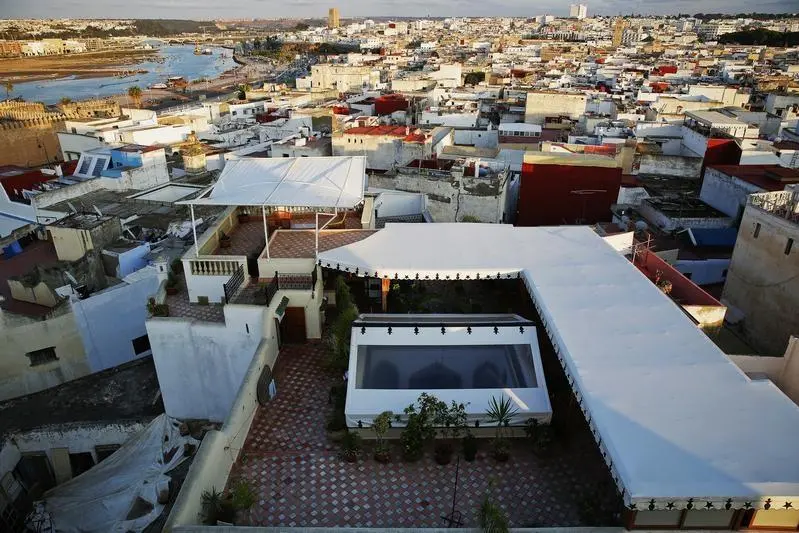PHOTO
In 2015 five times as many start-ups were launched in Morocco than in 2012, while four new incubators and accelerators opened shop, targeting a range of niche segments.
One of these was the France-based accelerator NUMA, which partnered with Moroccan incubator Eiréné4Impact to bring a network of international mentors to the country to encourage greater collaboration and innovation.
The joint venture, which became the first general incubator in the country, opened in January.
Growing the ecosystemAmong the other programmes launched last year was incubator Dare Inc, founded by the Moroccan Centre for Innovation and Social Entrepreneurship (MCISE); the Espace Bidaya incubator, developed by France's Le Comptoir de l'Innovation; and the green technology-focused Cluster Solaire.
More could be on the way, with Cairo-based accelerator Flat6Labs, which funds and mentors selected start-ups in the MENA region, also reportedly looking to expand into Morocco.
"Morocco has a lot to offer as an upcoming strong start-up hub in the region," Ramez Mohamed, CEO of Flat6Labs, said at a start-up conference in September.
To realise the market's potential, he noted, the public and private sector must work together to identify the best start-ups and provide them with capital, support and exposure.
Mehdi Alaoui, founder of Moroccan IT company ScreenDy, which provides a cloud-based platform to develop cross-platform mobile apps, sees app development as an area with significant scope for growth, particularly due to the fact that it's not a capital intensive activity.
"There are 35m developers in the world, but only 3m do app development," he told OBG. "Demand is currently outpacing supply five-fold. With the global app market expected to rise from an estimated $100bn at present to $500bn by 2020, app development is one of the most important segments in the IT sector."
In search of more fundingAs in other burgeoning start-up markets, however, access to funding remains a stumbling block for new businesses, though the government is playing a significant role to unlock financial support.
At present, the Morocco Numeric Fund (MNF), created by the state-owned Deposit and Management Fund in cooperation with three of the country's largest banks - Banque Centrale Populaire, Banque Marocaine du Commerce Extérieur and Attijariwafa Bank - is the only active venture capital investor for start-ups in the Moroccan market, and only a handful of entities, including Réseau Entreprendre Maroc (REM) and Eiréné4Impact, offer seed financing.
Created in 2009 with a total value of Dh100m (€9.2m), the MNF invests between Dh1m (€108,000) and Dh4m (€435,000) in start-up IT companies, with the possibility of additional capital in exchange for shareholding positions in the firms.
In the five years leading to June 2015, the organisation had invested in 13 local start-ups; however, investment has remained largely contingent on start-ups achieving certain sales figures, according to Omar El Hyani, MNF's investment manager.
REM, meanwhile, provides $10,000 in so-called honour loans, which offer attractive repayment terms and low-to-zero interest rates, while Eiréné4Impact offers up to $150,000 in seed financing, according to local media reports.
Founded in 2012, the not-for-profit MCISE also provides funding and support to emerging businesses, including IT ventures, with a combination of loans and grants. Support is provided through zero-interest loans to firms during their initial phase by covering between 50% and 90% of expenses, with financing of up to Dh4m (€365,570).
Meanwhile, the entrepreneurship arm of the state-owned Office Chérifien des Phosphates (OCP), one of the country's most active promoters of start-ups, is also unlocking support from the private sector through the OCP Entrepreneurship Network, founded in late 2013.
The network, which mentors and matches entrepreneurs with business leaders, has helped create some 600 jobs in its first two years in operation, aiding 577 companies and providing training to some 9660 entrepreneurs, according to the OCP Foundation's 2015 annual report.
While state-backed financial support has proven to be a catalyst for the local start-up industry, more financial incentives are needed to unlock private investment and encourage young entrepreneurs, according to Alaoui.
"We need fiscal incentives for individuals so that they invest in start-ups in Morocco," he told OBG. "Despite the growth of associations, there are 250 start-ups in Morocco compared to 2500 in France and 14,500 in the US," he added, noting room for growth.
© Oxford Business Group 2016





















